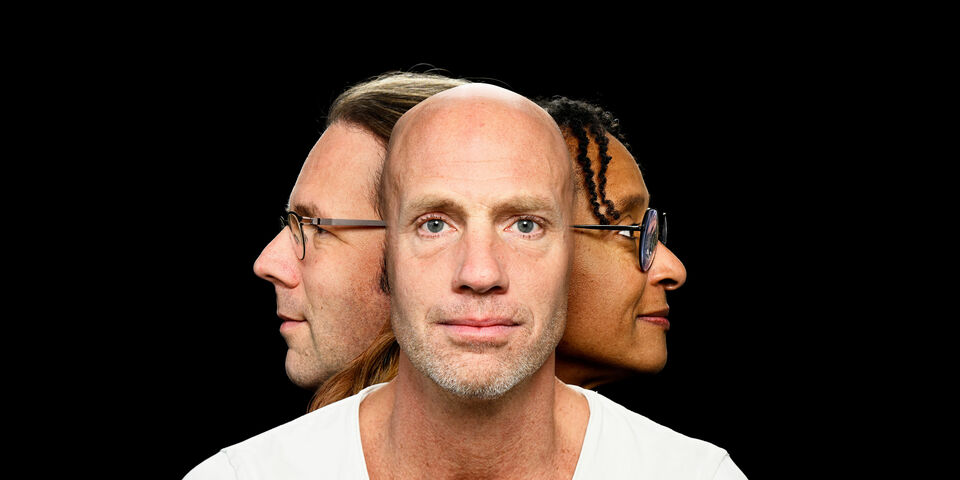BFF | Elite athletes
Journalists often use catch phrases like: ‘Top scientist achieves major breakthrough.’ But what does it mean? What is the definition of ‘top science’? Until very recently, the scientific community employed useful (but definitely imperfect) metrics, such as the number of publications, citations, the h-index, the notorious impact factor, the success of trainees, etc. In the absence of objective measures, it becomes nearly impossible to define and identify excellence.
And that appears to be the exact intension of the ‘Recognition & Rewards’ movement that is strangle holding the Dutch academic system. With the abolishment of metrics and the introduction of the ‘narrative cv’, the evaluation process has become opaque and arbitrary, which is fantastic news for academics who didn’t earn their position based on merit, but acquired their positions based on a privileged background or political network.
Comparing top scientists to elite athletes is a no-go in the current Zeitgeist. At Dutch universities this analogy has become a taboo, a sin. And, as has also become typical, the most aggressive critics exhibit very little knowledge about the lives of elite athletes. For example, a colleague posted on social media “Where are my millions?” in response to the analogy. In other circles, elite athletes and competition are deemed toxic. In this column – and perhaps against better judgment – I will try and rectify some misconceptions.
First and foremost, one should not aspire to become an elite athlete for financial gains. Quite the contrary. In the Netherlands, the vast majority of Olympic athletes are dependent on a stipend from NOC*NSF (The Dutch Olympic Committee-Dutch Sports Federation). It was put in place to financially support elite athletes in their fulltime commitment to their sport, which includes a very modest financial compensation for cost of living. In that regard, elite athletes resemble PhD students. In the Netherlands, PhD students receive a decent, but relatively low salary, while expenses for visiting a conference are reimbursed. Spoiled soccer and tennis players who earn millions of euros are extremely rare and can be best categorized as ‘celebrities’.
Second, the willingness to accept serious sacrifices is a prerequisite for top scientists and elite athletes. Not a single Nobel Prize winner was concerned about their ‘work-life-balance’. These individuals typically don’t consider what they do a job, they consider it a mission to achieve their ambitions. Retroactively, the sacrifices and commitment may have paid off, but we never hear about the numerous folks who did not make an impactful contribution but were as committed as the few who became very successful. The passion for science is the driver, not money or fame. The same holds true for elite athletes, the vast majority nobody even knows. They grind in anonymity out of love for their sport.
It’s critical to understand that in both science and sport, performance does not scale linearly with effort. When assuming equal talent, working 10 hours per day (instead of 8 hours) will result in a productivity gap that will be much higher than 25 percent. That’s because the additional effort accumulates. It is well-known that throughout his career, soccer player Ronaldo trained significantly more than his regular program, ranging from practicing free kicks, to weight training and swimming. In the absence of Messi’s talent, that attitude made Ronaldo a superstar and allowed him to perform at a very high level for much longer than most colleagues.
Last, but not least, it seems wise for individuals who aspire to be a top scientist (or elite athlete) to work on building scientific muscle memory (intuition) as young as possible. This can only be achieved by putting in the mileage, in the lab, on the athletic track, in the pool, by writing a lot (and ignoring ChatGPT), by working diligently on plans, through self-reflection and by training with experienced people. And most important, by finding a great coach or mentor. One who not only helps you build your own intuition but amalgamates theirs with yours.
That’s why in the world of elite sports records are still being broken and, in our world, important scientific discoveries are still being made. Everything we do now, we do standing on the shoulders of giants.
BFF | Bald, Frizzy or Flowing is a joint initiative of Willem Mulder (Bald), Monique Bruining (Frizzy) and Luc Brunsveld (Flowing), that they started at the beginning of 2023 on the site of Cursor.


Discussion